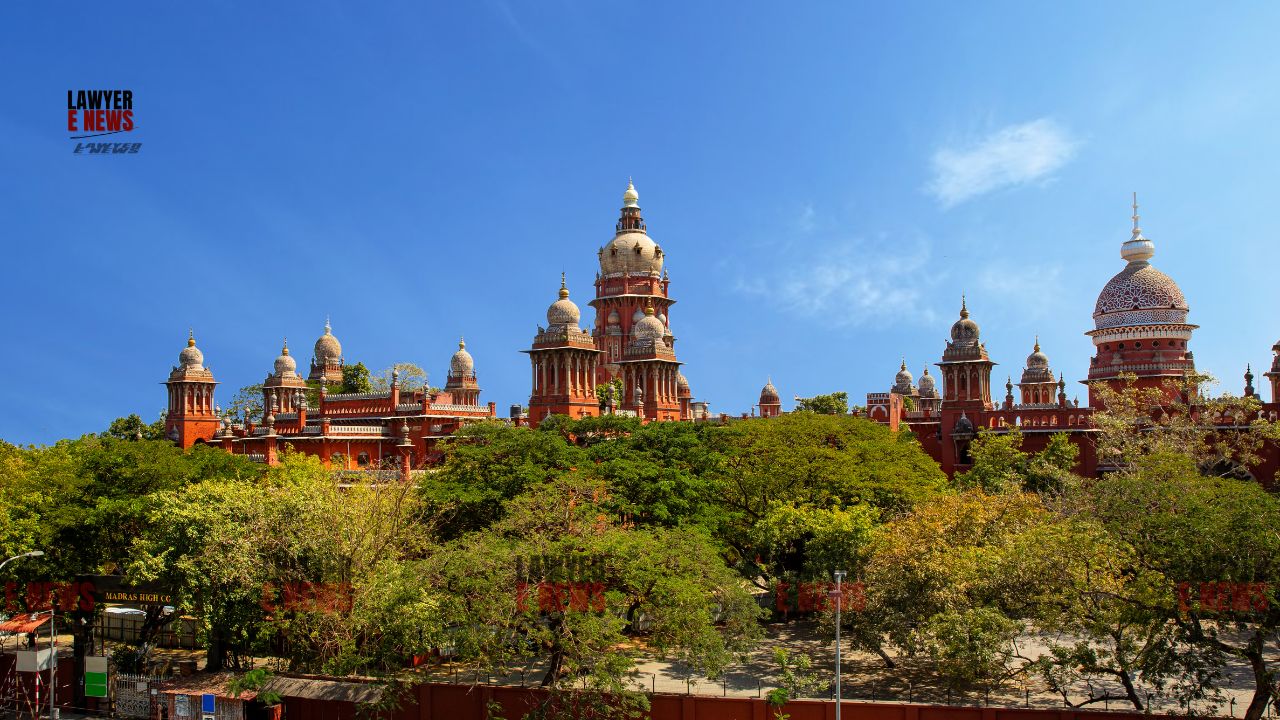-
by Admin
15 February 2026 5:35 AM



Justice Teekaa Raman affirms that Indian Christian Marriage Act does not recognize customary divorce, impacting the inheritance rights in a complex family dispute.
The Madras High Court, in a significant judgment, has upheld the trial court’s decision to reject the claim of a man who contended that he had divorced his first wife through customary practices and subsequently married another woman. The court emphasized that the Indian Christian Marriage Act does not recognize customary divorce and clarified that nomination in service records does not confer legal heirship. This ruling has profound implications on the interpretation of marital and inheritance rights under Indian Christian law.
The appeal arose from a judgment and decree in O.S. No. 33 of 2013 dated February 12, 2016, where the trial court declared the plaintiff’s title and possession over the disputed property and restrained the defendant from alienating it. The appellant, P. Jayachandran, claimed to have divorced his first wife, Stella, through customary practice and later married Margarette Arulmozhi, who died in 2013. He argued that he was her legal heir based on her nomination of him as the beneficiary in her service records. The respondents, the legal heirs of Margarette Arulmozhi, contested this, claiming that no legal divorce had occurred, making the second marriage invalid.
Justice RMT. Teekaa Raman noted that under the Indian Christian Marriage Act, customary divorce is not recognized. “The Indian Christian Marriage Act recognizes the principle of monogamy and does not permit a customary form of divorce,” the court held. The court highlighted that Jayachandran’s claim of customary divorce was unsupported by any legal evidence, making his subsequent marriage to Margarette Arulmozhi invalid.
The court further clarified that nomination in service records for benefits such as provident fund or pension does not equate to legal heirship. “Nomination is merely for the purpose of receiving benefits and does not confer any legal status or inheritance rights,” the judgment stated.
The defendant’s unilateral cancellation of the settlement deed executed in favor of Margarette Arulmozhi after her death was declared invalid. The court affirmed that upon her death, her legal heirs under the Indian Succession Act, specifically her father, were entitled to her property.
Addressing the nature of the relationship between Jayachandran and Margarette Arulmozhi, the court ruled that it did not have the legal standing of a marriage. “The relationship between the appellant and the deceased cannot be considered a legal marriage due to the subsistence of the first marriage,” the judgment emphasized.
The court reiterated the principles governing marital and inheritance rights under Christian personal law in India. It underscored the necessity of a legally recognized divorce for any subsequent marriage to be valid. “In the absence of a court-sanctioned divorce, any subsequent marriage is invalid under the Indian Christian Marriage Act,” the court noted.
Justice Teekaa Raman stated, “The plea of customary divorce is impermissible under the Indian Divorce Act, and the Indian Christian Marriage Act mandates that neither party to a marriage should have a living spouse at the time of a subsequent marriage.”
The High Court’s ruling reaffirms the stringent requirements for divorce and remarriage under Indian Christian law. By dismissing the appeal and upholding the trial court’s judgment, the court has set a precedent emphasizing the legal process in matters of marital status and inheritance. This decision clarifies that customary practices cannot override statutory provisions, ensuring the protection of legal rights in complex family disputes.
Date of Decision: June 7, 2024
